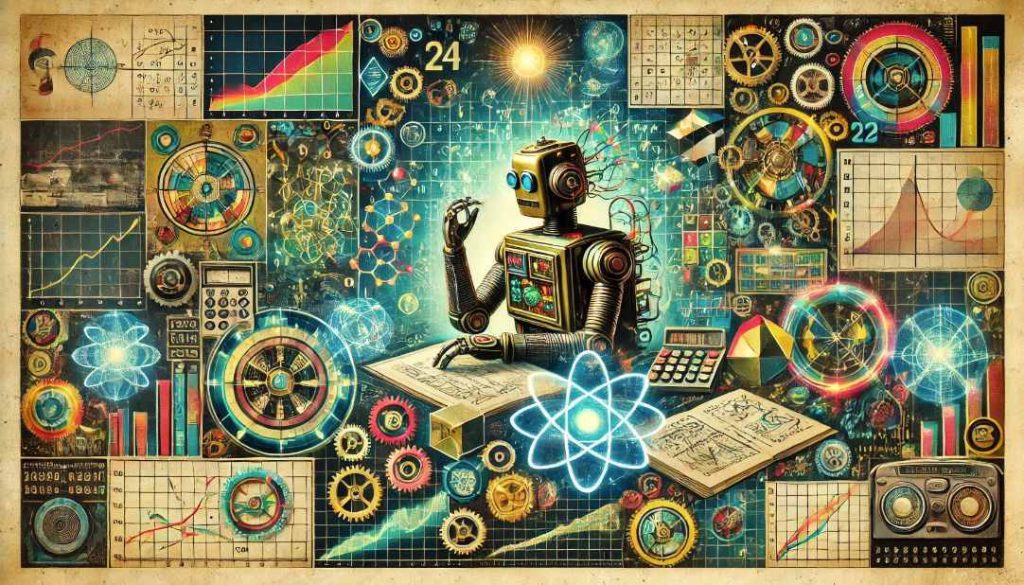The Future of AI Reasoning Models Revolutionizing Technology

In a rapidly evolving tech landscape, the approach to artificial intelligence is undergoing a transformative shift. Traditional methods of overwhelming compute power are being questioned. Instead, a more streamlined, efficient strategy is paving the way forward.
This new wave of reasoning models is not just a trend but a necessity for progress. Emerging startups and established tech companies are embracing these models. This shift promises innovation and efficiency, showing that sometimes, less can indeed be more.
The Evolution of AI Models
The AI world is witnessing significant change. Instead of focusing solely on power, there’s a growing emphasis on purpose. This shift marks a new era where reasoning-focused models are taking center stage, revolutionizing how AI operates.
In this evolving landscape, less is more. Companies are strategically reducing their reliance on massive data sets. This allows for targeted and precise training, optimizing AI performance without unnecessary resource use.
AI models are not just about size anymore. The focus is shifting towards efficiency and intelligence. By integrating reasoning capabilities, these models offer smarter solutions, driving a more innovative AI future.
Today’s AI Innovations
AI advancements are unfolding rapidly, offering new possibilities. Novel tools like Nvidia’s Fugatto highlight this transformative era by turning text prompts into a variety of sounds, showcasing versatility and innovation.
Anthropic’s Model Context Protocol simplifies third-party data interactions, reducing integration complexity. By easing data connectivity, it offers smoother experiences, marking a significant step in AI development.
Luma Labs’ Dream Machine introduces fresh features, enhancing user creativity. Its updated interface and functionalities demonstrate AI’s evolving potential to adapt and inspire across industries.
Gen Z’s AI Adoption
Gen Z is at the forefront of the AI revolution. Embracing AI tools, they are reshaping the professional landscape. Their adaptability and innovation are driving changes across various sectors.
Despite universal enthusiasm, some organizations remain cautious. Concerns about potential side effects have led to restrictions. Balancing benefits and risks is an ongoing challenge for companies.
Nevertheless, Gen Z’s engagement with AI signifies a future-minded approach, poised to redefine industries. They are key players in advancing AI’s role in modern workplaces.
The Financial Aspect of AI Models
Developing reasoning models presents financial opportunities. While costly to run, their build expenses are relatively low, opening doors for diverse market entries.
The focus is shifting to efficiency, leading to innovative financial strategies. Companies are balancing investment with anticipated gains, reflecting AI’s growing economic importance.
However, operating costs remain a hurdle. As efficiency improves, so must cost-management strategies, ensuring sustainability and growth within the AI sector.
Tools for Productivity Enhancement
AI tools are transforming productivity across sectors. They offer solutions that streamline processes and enhance efficiency. Their integration is becoming essential for modern workflows.
Among these tools, Futudo stands out. By learning user preferences, it suggests relevant actions, reducing decision-making anxiety and fostering productivity.
These advancements reflect AI’s role in enhancing both personal and professional productivity, demonstrating its adaptability and potential.
Pyramid Analytics exemplifies AI’s impact in business intelligence. By helping companies understand data better, it optimizes decision-making processes, showcasing AI’s essential role in today’s data-driven environment.
Public Speaking with AI Assistance
AI is not just confined to data processing. It’s revolutionizing individual skills like public speaking. Using tools like ChatGPT, individuals can practice and perfect their presentation abilities.
These AI-driven enhancements allow personalized feedback. By simulating interactions, users gain insights into their speaking style and areas for improvement.
This innovative approach makes public speaking more accessible. With AI assistance, anyone can enhance their communication skills, breaking barriers to effective expression.
AI in Conservation Efforts
AI is playing a vital role in conservation. Technologies are helping protect endangered species and address ecological challenges.
In the UK, AI models are safeguarding red squirrels by controlling feeding access and managing predator populations. This approach exemplifies AI’s potential in environmental preservation.
For conservationists, AI offers not just innovation but hope. It provides effective solutions for preserving biodiversity and ensuring sustainability for future generations.
This ecological approach highlights AI’s versatile applications beyond traditional tech environments. By integrating AI into conservation strategies, we are enhancing global efforts to protect nature.
Challenges and Opportunities
AI’s rapid development presents both challenges and opportunities. Navigating these complexities requires strategic planning and robust innovation.
While AI tools offer transformative potential, effective integration is crucial. Overcoming barriers like costs and privacy concerns is vital for maximizing benefits.
This dynamic field continues to evolve, offering numerous possibilities. Understanding and addressing these challenges will shape AI’s future, ensuring its role as a catalyst for progress.
The Road Ahead for Reasoning Models
The future of AI lies in refining reasoning models. These models promise efficiency and intelligence, paving the way for a more sustainable AI landscape.
In navigating this future, companies must prioritize strategic investments. By focusing on enhancements, they can foster innovation and drive progress.
With reasoning models leading the charge, AI will continue to transform industries. This journey holds the promise of a truly intelligent and efficient technological future.
The future of AI is deeply intertwined with reasoning models. As this approach gains momentum, it promises a smarter and more efficient technological landscape.
By prioritizing strategic investments and innovation, the AI sector is poised for groundbreaking advancements, ensuring its role in shaping a smarter tomorrow.





